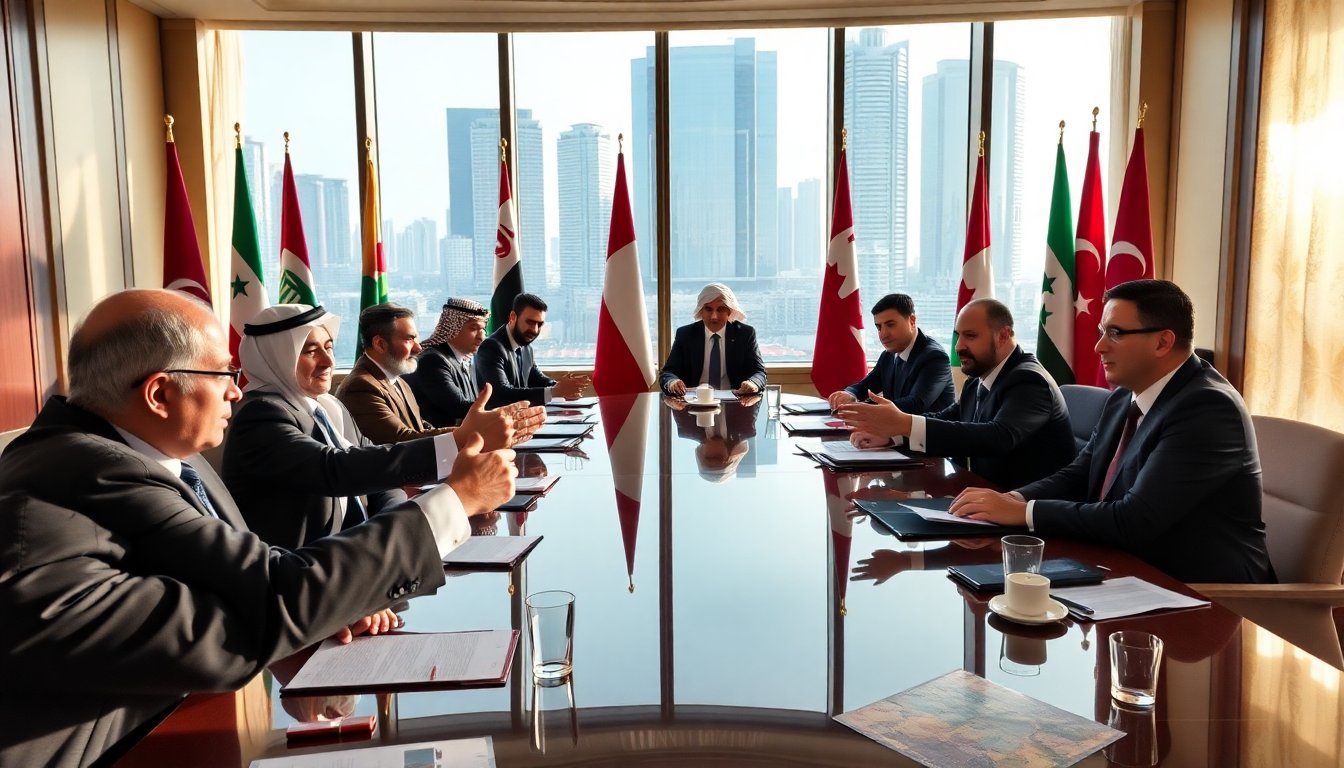Table of Contents
The recent emergency summit held in Doha gathered leaders from Arab and Islamic nations to address escalating tensions in the region. This meeting followed the Israeli attacks on Hamas leaders in Qatar. The summit emphasized the necessity for a cohesive response to security threats, with the Gulf Cooperation Council (GCC) pledging to activate a joint defense mechanism. This commitment represents a significant step toward regional cooperation aimed at ensuring mutual security among member states amidst increasing hostilities.
Market Overview: Context of Regional Tensions
As the geopolitical landscape shifts, the recent Israeli strikes have ignited widespread condemnation across the Arab world. The GCC, which includes Bahrain, Kuwait, Oman, Qatar, Saudi Arabia, and the United Arab Emirates, has long recognized the importance of a united front against external aggression. The summit, initiated by Qatari Emir Sheikh Tamim bin Hamad Al Thani, highlighted the urgent need for collective action in light of the recent attacks, which the Emir characterized as “blatant, treacherous, and cowardly.”
The meeting served as a platform for expressing solidarity with Qatar and for reassessing the security architecture of the region. With the GCC’s joint defense pact, member states aim to fortify their military collaboration, ensuring that an attack on one is viewed as an attack on all. This strategic alignment is vital in a time when geopolitical tensions threaten stability, with profound implications for regional security.
Analysis of Key Zones and Military Strategies
The summit’s discussions encompassed broader military strategies, including the establishment of Gulf deterrent capabilities. GCC spokesperson Majed Mohammed Al-Ansari indicated that consultations among military leaders are already underway to enhance the region’s defensive posture. The proposed meeting of the Unified Military Command in Doha will be pivotal in outlining concrete steps to bolster security and deter future aggressions.
Sheikh Tamim emphasized that the recent attacks on Hamas leaders in Qatar, who were engaged in discussions about a ceasefire in Gaza, demonstrate Israel’s lack of genuine interest in peace. This assertion reinforces the urgency for GCC member states to unify their defensive capabilities and explore innovative strategies to safeguard their sovereignty.
Moreover, the summit served as a platform for leaders like Turkish President Recep Tayyip Erdogan to advocate for economic pressure on Israel, illustrating the multifaceted approach necessary to address these complex challenges. The call for accountability through international mechanisms indicates a shift towards a more assertive regional stance against perceived aggressions.
Trends and Future Outlook for Regional Security
The concluding statements from the summit revealed a commitment to solidarity but did not announce immediate political or economic measures against Israel. The GCC’s collective response reflects a growing recognition among Arab and Islamic leaders that a more robust and coordinated strategy is essential for addressing ongoing threats to regional stability.
As military consultations proceed, expectations remain high for the GCC to develop a clear action plan that aligns with the interests of its member states. The call for increased military readiness and the establishment of a joint command exemplify a proactive approach to countering future threats.
Looking ahead, the GCC’s commitment to a united defense mechanism may serve as a deterrent against further aggressions, fostering a sense of security among member states. As geopolitical dynamics evolve, the region’s leaders must remain vigilant and adaptive, ensuring their strategies are both effective and responsive to emerging challenges.


